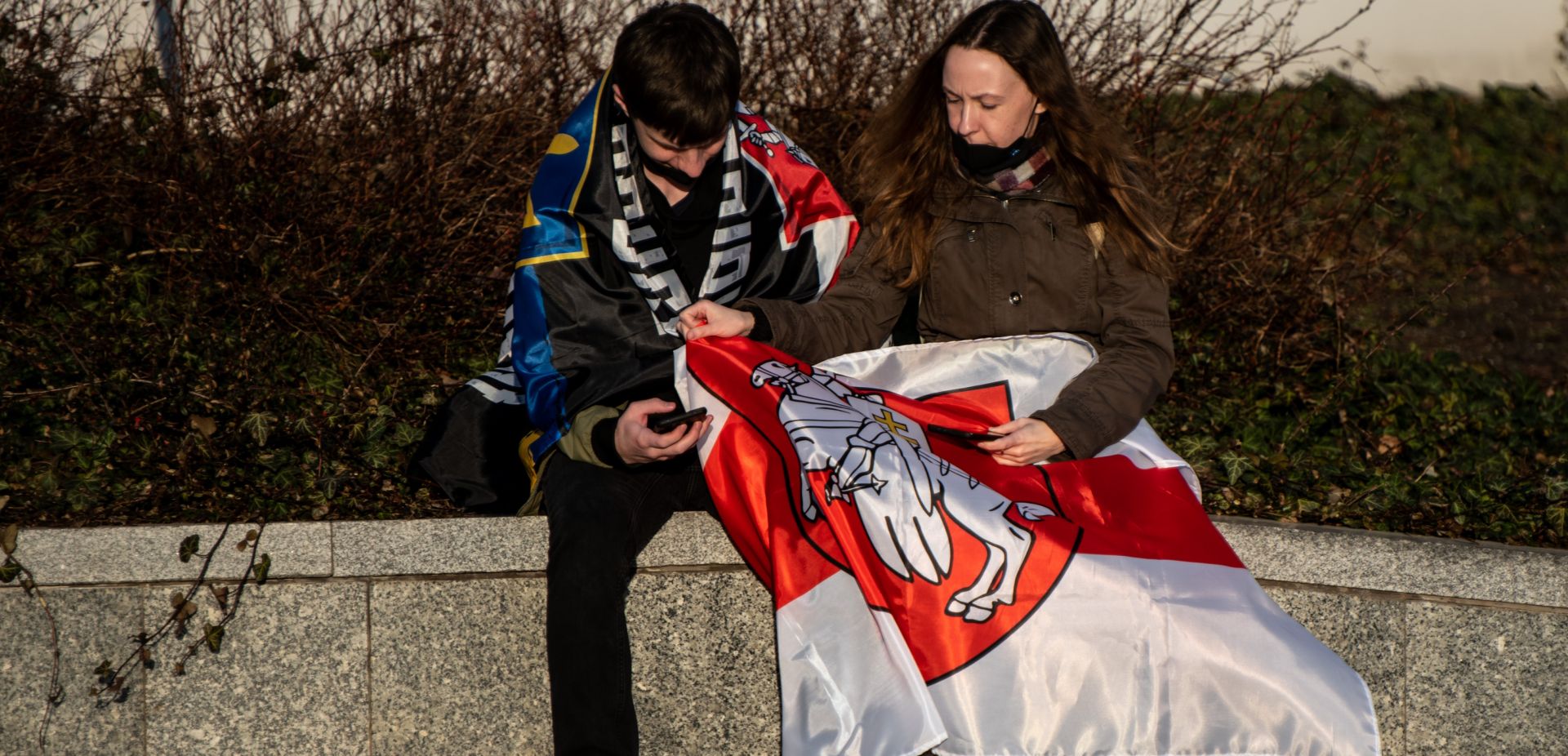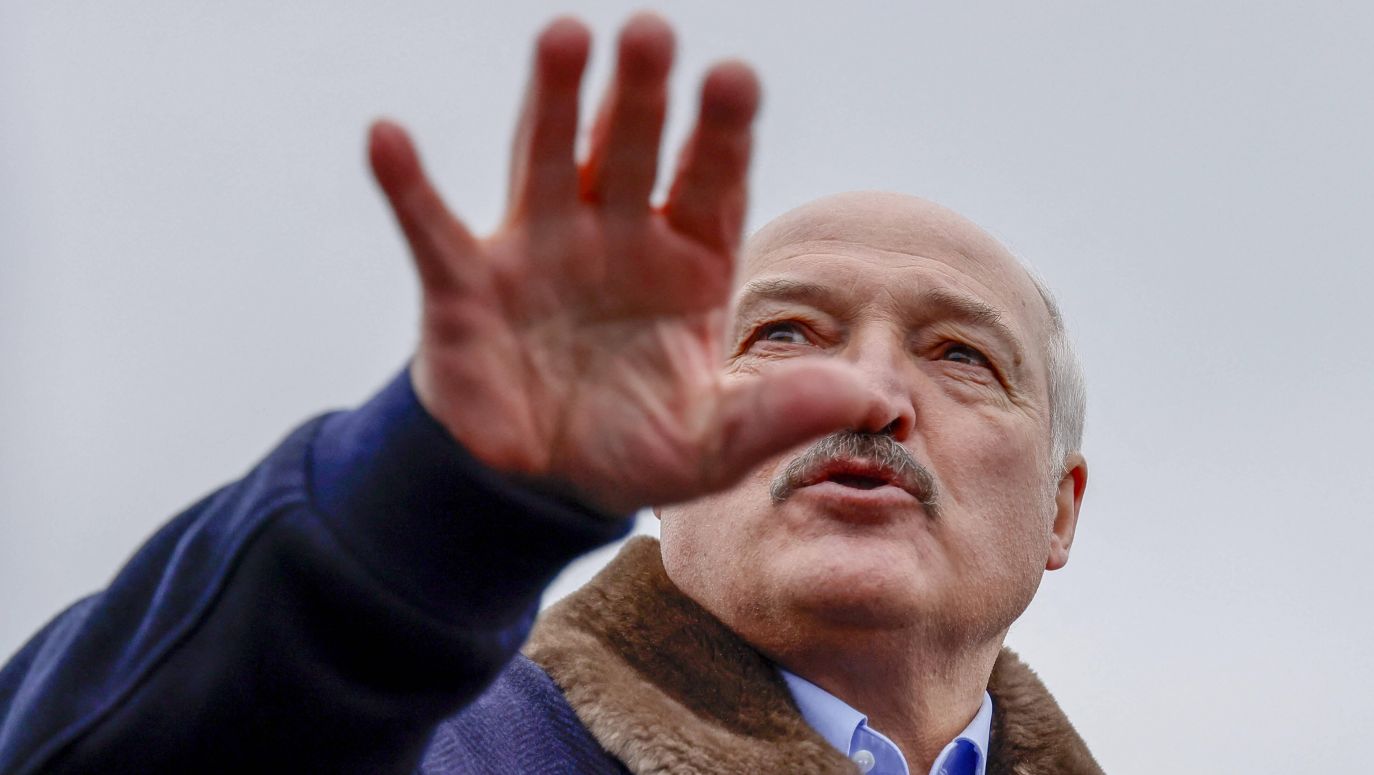It was an authoritarian country, but has become a dictatorship in which Alexander Lukashenka is trying to rule with terror and fear. Belarus is a country where there are 1,450 political prisoners and where Andrzej Poczobut, a journalist and activist of the Union of Poles in Belarus (ZPB) has been sentenced to eight years in a penal colony for allegedly “spreading hatred” and “rehabilitating Nazism”. The Prosecutor’s Office has recently demanded 19 years in prison (in absentia) for the head of the United Transitional Cabinet, Sviatlana Heorhiyeuna Tsikhanouskaya (remains in Vilnius) and her closest associate, Pavel Latushko (live in Warsaw). Meanwhile Belarusian “guerilla fighters” are destroying the rail network and have attacked a Russian plane.
The situation is particular. After the rigged presidential election in 2020 and after the brutal treatment thousands of protesters – many of whom were beaten, imprisoned and sentenced – a number of western countries don’t recognize Lukashenka as president. His main counter-candidate, Sviatlana Tsikhanouskaya, formed an emigration government, and in Poland (but not only) she is addressed by many as “Mrs. President”. As a matter of fact this is already the second Belarusian emigration authority as there also exists the Belarusian Democratic Republic (which had been in power shortly before the end of WWI) headed by Canada-based Ivonka Survilla.
Lukashenka, who earlier attempted to manoeuver between Russia and the West has now only ally: Vladimir Putin. And in practice, he fulfills all his demands, which has reduced Belarus to the role of Russia’s vassal. The Belarusians do not participate in the war against Ukraine, it is true, but they have, but they have made their bases and training ground available to the Russian army, just as they have given it a major part of their military equipment.
From the Polish point of view the situation I appalling – for Lukashenka our country is an enemy, Poles living on the Neman or Svislach are suffering indeed, the ZPB has been crushed, the Polish education is going into liquidation, Polish media have been closed down by the authorities.
Conviction for a poem
Just a few years ago, opposition parties and organizations in Belarus were functioning normally. Admittedly, they had negligible possibilities of action and zero chance of winning the elections (unless Lukashenka, feigning democracy, gave them some single seats in parliament or local councils), but they existed. Now the old groups are in disarray, and it is difficult to talk about new ones, because officially they do not operate on the territory of Belarus – and the only known ones are those that are Poland or Lithuania. Because today, even for writing a comment unfavorable to the authorities on social media, you can go to prison. In fact, it is dangerous to carry an umbrella in white and red, because the white-red-white flag, considered to be opposition, is simply forbidden, and displaying it means anti-state activity.
The Belarusian authorities, of course, do not publish information about sentences in political cases. Anyway, such sentences are not called political – depending on the needs, it is indicated that the accused threatened the security of the state, the stability of society, or even carried out extremist or terrorist activities. However, it is enough to look at the tweets of the human rights organization Viasna (Spring). Here are some of the latest:
– Alexei Vecherny, aged 62, was sentenced for writing an anti-war poem to 1 year and 9 months in a penal colony. After the shelling of Ukraine from Belarusian territory began, he recorded the poem on camera and posted it on TikTok. It contained words that allegedly insulted Lukashenko. And the president of Belarus must not be insulted.
– Alena Miroshnychenko, a resident of Orsha, acting in defense of animals, was sentenced to 15 days in prison for a humorous appeal to meet and celebrate ... the opening of a cat house. Judge Yulia Vershinina noted “the nature and degree of harm of the crime committed, aimed at destabilizing the situation in society and the state”. It turned out that, according to the court, Miroshnichenko wanted to organize... an illegal assembly.
– Andrei Raptunovich was sentenced to 4 years in prison for intending to join the Volunteer Regiment of Konstanty Kalinowski, fighting on the side of Ukraine in the war against Russia.
– Viktoria Nowitska was sentenced to a year and a half in a penal colony. The reason: she is the sister of Jan Melnik, a volunteer fighting in Ukraine in the Regiment of Kalinowski.
Danuta Peradnya, a 21-year-old “classified’ as “terrorist”, was sentenced to 6.5 years in prison for re-sharing a post on social media criticizing Putin and Lukashenko on the anniversary of Russia’s invasion of Ukraine. The KGB put her on the “terrorist list”, and the Interior Ministry – on the “list of extremists”.
 SIGN UP TO OUR PAGE
SIGN UP TO OUR PAGE

There is also a lot of information about the terrible treatment of prisoners. A former lieutenant colonel of the militia, who burnt his uniform in protest against the authorities’ actions, was detained in the Minsk remand in Akreshina St. He spent 46 days in solitary confinement – on concrete, in winter. He was released in a serious condition.
Trauma behind bars
Belarusian detention centers, prisons and penal colonies are places where, as a rule, inhumane conditions prevail. Being behind bars means severe trauma. And so it has been for years, only that now there are more prisoners.
The Belarusian-language portal “Nasha Niva” published an article about the “American Woman”, as the detention center of the KGB in Minsk is called. It is worth mentioning that “Nasha Niva” is one of the oldest weeklies (and one of the few Belarusian-language magazines), but it was closed down by the authorities. The portal is unavailable in Belarus, and the pages of “Nasha Niva” on social media have been considered extremist.
Coming back to the “American Woman”: there are two two-level metal bunks in the cells, as well as wooden stools and a table. The walls are mildewed because there is high humidity - ventilation is very poor, there are usually many prisoners in the room, who also try to wash their underwear and have no way to dry it. As a result, clothes get mildewed too. In the “American Woman”, some cells have toilets; in others, a bucket of water (or rather, washing up) is delivered daily, and prisoners go to the toilet only on schedule, morning and evening.
TV Belsat also described the places of detention of Belarusian prisoners in a series of articles. One of them was dedicated to another prison in Minsk, the so-called Volodarka, where most of the prisoners are “political”. There are toilets in most cells and a place to wash yourself, but when there are more than twenty people in one room, it is quite difficult. The cell is managed by the “senior” – the one who sits the longest. It’s the “senior” who talks to the guards.
Some of the detainees are sent to a hard prison in Zhodino, also described by Belsat; Andrzej Poczobut spent many months there. The entire prison area is surrounded by a double line of security. The prison has a network of underground passages – detainees go there from one place to another, escorted by guards.
As one of the political prisoners related, they were brought in late at night: “Near the avtozak (car transporting the detainees) there were guards with truncheons. We were lined up in two rows and told to run with our heads down and our hands behind our backs. We ran and were hit with sticks (…). All this was accompanied by insults directed at us. We ran down the hall, up the stairs, still with our heads down. The corridors of the prison are wide, painted with dirty red paint”.
Upon arrival, they were stuffed into “glasses” – meter-by-meter cells. There were ten people in each. While waiting for the search, one had to stand up straight in such a “cell” for up to ten hours. Then they were all sent to “normal” cells – rooms 6 meters long and 2-4 meters wide. A metal door with a grille of metal bars in front of it; a grille and metal mesh in the window, practically no sunlight. The cell has a metal toilet and a sink, a concrete floor and metal bunk beds. There are up to 12 detainees (or convicted prisoners) in the cells.

 SIGN UP TO OUR PAGE
SIGN UP TO OUR PAGE
 There is also a lot of information about the terrible treatment of prisoners. A former lieutenant colonel of the militia, who burnt his uniform in protest against the authorities’ actions, was detained in the Minsk remand in Akreshina St. He spent 46 days in solitary confinement – on concrete, in winter. He was released in a serious condition.
There is also a lot of information about the terrible treatment of prisoners. A former lieutenant colonel of the militia, who burnt his uniform in protest against the authorities’ actions, was detained in the Minsk remand in Akreshina St. He spent 46 days in solitary confinement – on concrete, in winter. He was released in a serious condition.





